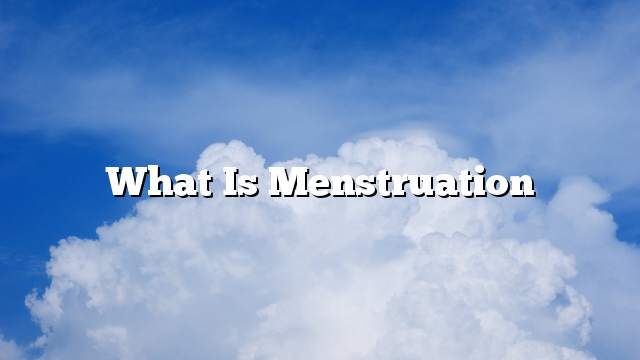Menstruation
Menstrual period is a group of physiological changes that affect the lining of the uterus as a result of rupture of the uterus due to the presence of the egg inside it, and the lack of fertilization which leads to the elimination of blood form associated with pain in the lower abdomen, back, Twenty-eight days in the case of regular menstruation, we will mention in this article what is menstruation, hormones affecting it, symptoms associated with menstruation, and some recipes that reduce the number of menstrual days.
Symptoms associated with menstruation
- headache.
- Swelling in the hands, feet.
- Abdominal aches, back pain.
- Feeling bloated.
- Acne.
- Digestive disorders of diarrhea, or constipation.
- overweight.
- Breast pain.
- Mood swings, anxiety, and tension.
- Nausea.
- Feelings of uneasiness, fear.
- Nervousness, and excess sensitivity.
- Loss of focus.
Treatment of menstrual symptoms
- Balanced eating that contains many nutrients that the body stands for during the menstrual period, including vitamin 6, magnesium, and calcium.
- Drink warm drinks and analgesic, such as: ginger, cinnamon, or marjoram, or fenugreek, or lemon with honey.
- Take analgesics such as prophylaxis or aspirin that relieve the pain produced by the prostaglandin hormone in the body.
- Diuretics especially for women who gain excess weight due to fluid retention in the body.
Hormones affecting menstruation
- Estrogen: It is a hormone that is present in the body of the woman, which is secreted through the ovaries, causes lack of osteoporosis, and helps to grow the genital organs such as the vagina, breast, uterus and growth of hair under the armpits, and prepares the breast gland to receive the hormone produced milk Anterior lobe of the pituitary gland.
- Progesterone: This hormone helps to regulate menstruation, especially in the pre-menstrual period by two weeks. It is also essential in the preparation of the uterus for pregnancy, the formation of the placenta, the ovulation of the egg in the womb, the breast gland for breast feeding, and continues until the last stages of pregnancy.
- Ovary gland: One of the core sex glands in the woman’s body, located on both sides of the lower abdomen, has multiple functions including the production of oocytes, progesterone secretion, and estrogen.
- Other hormones:
- Activated hormone for ovarian follicles.
- The hormone responsible for ejaculation of oocytes from ovarian follicles.
Natural ways to reduce menstrual days
- Chili pepper: Drink a glass of water and add a tablespoon of crushed chili three times a day, which helps maintain the balance of hormones in the body and reduce the number of days of menstruation.
- Cinnamon: Drinking boiled cinnamon, added to a little honey twice a day helps to reduce the days of menstruation, and reduce bleeding resulting from the endometrial migration, and relieve convulsions, and cramps associated with menstruation.
- Cold compresses: Put a few ice cubes on a piece of cloth, then apply compresses on the abdomen for about a quarter to a third of an hour, which helps to ease the flow of blood, and relieve the abdominal pain.
- Apple cider vinegar: Mix two tablespoons of apple cider vinegar with a glass of water, and drink this mixture three times a day helps relieve nervousness, convulsions, and headaches associated with menstruation.
- Banana flower: Adding a banana flower to the diet helps reduce blood bleeding and increases the production of progesterone in the woman’s body.
